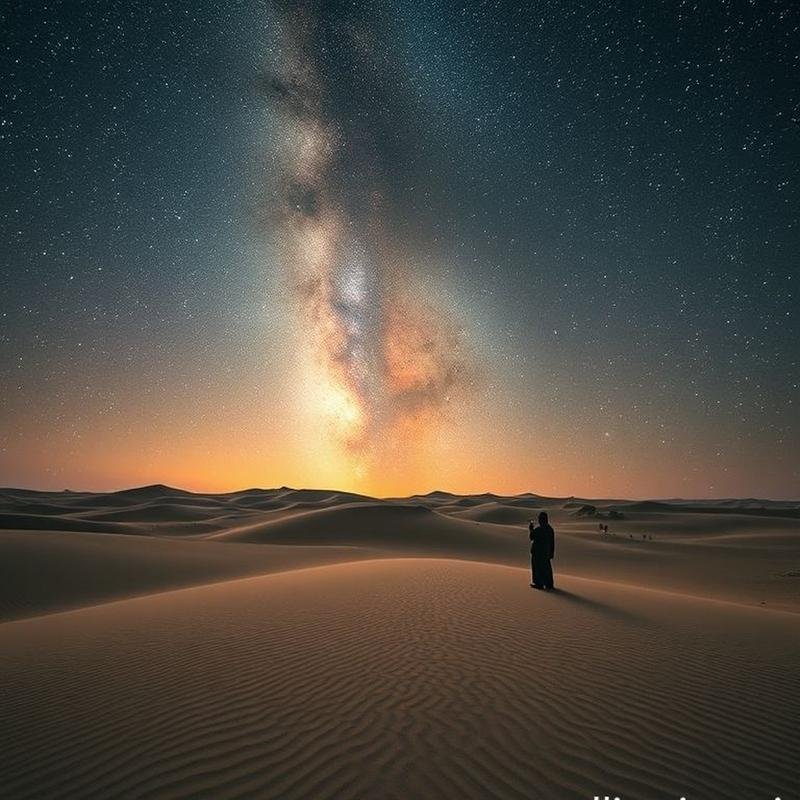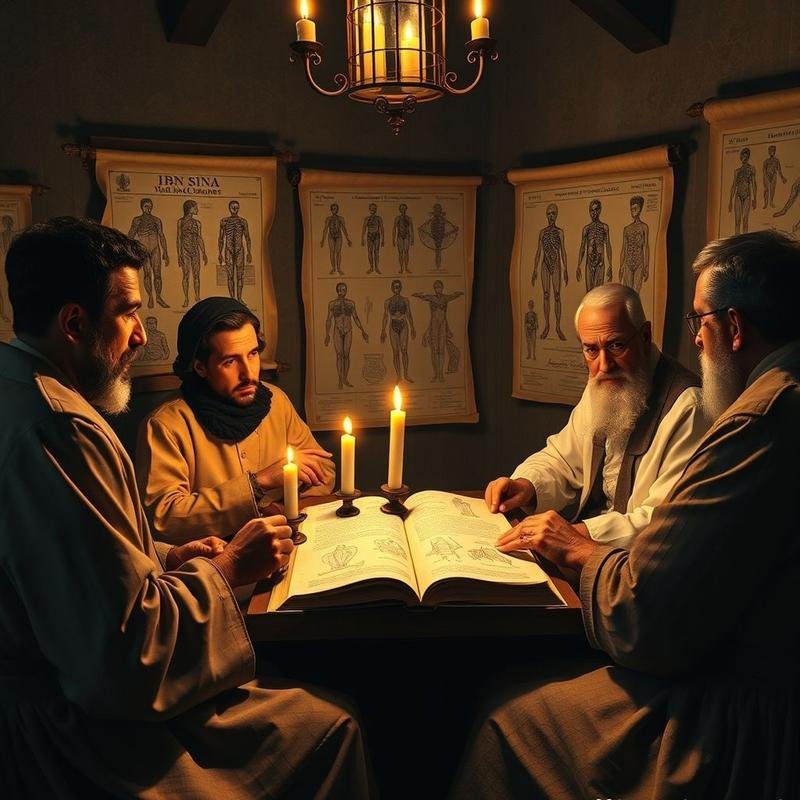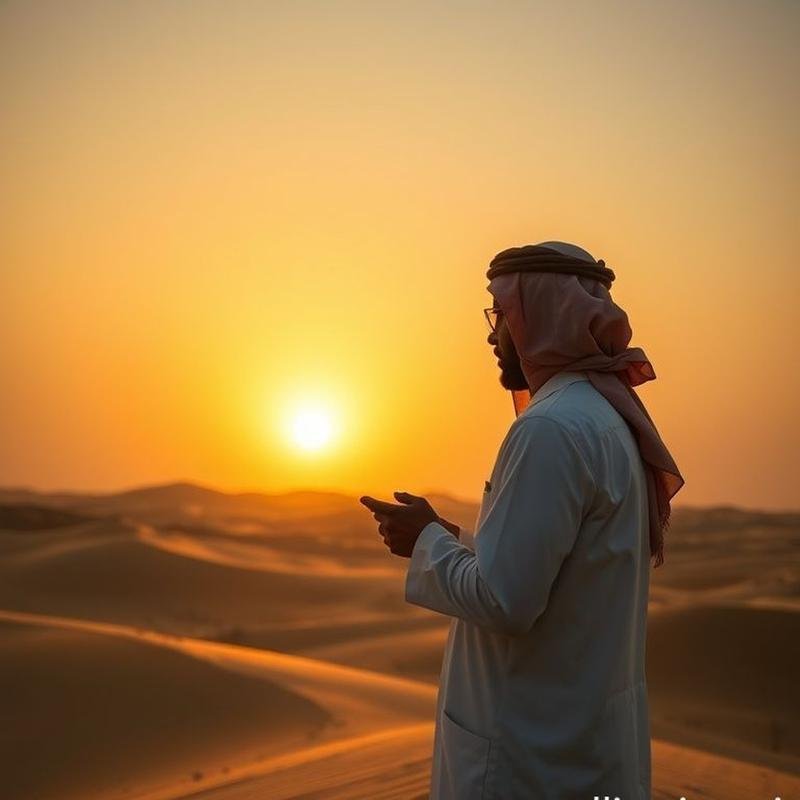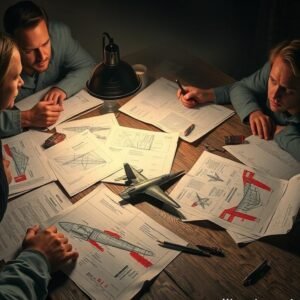Arabic Language: A Key to Unlocking the Universe’s Astonishing Secrets?
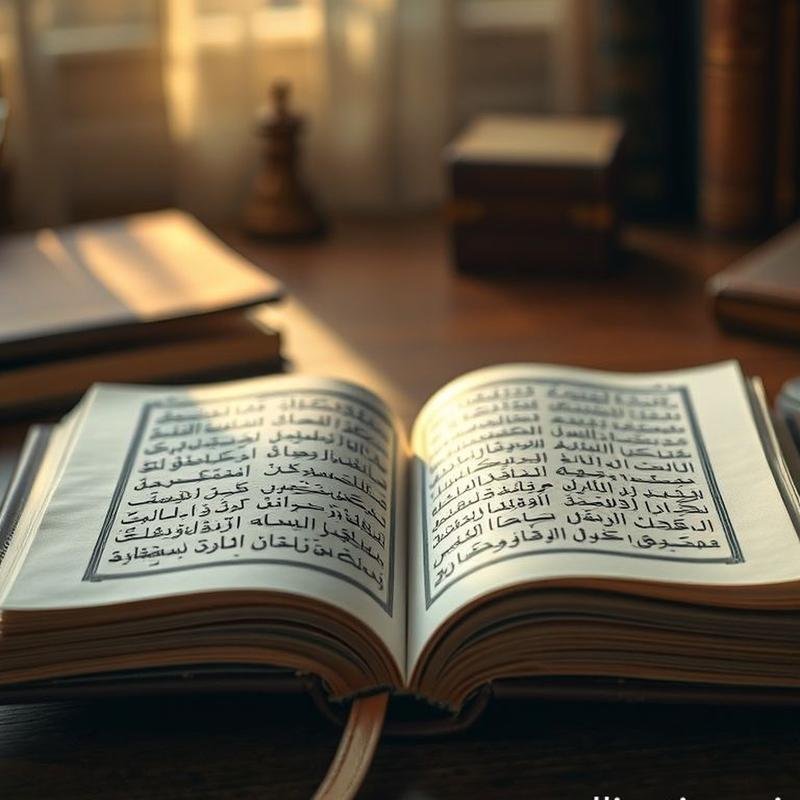
Arabic Language: Unlocking Universal Knowledge?
Is physics exclusive to Western thought? Perhaps not. The Arabic language may hold undiscovered insights, with the secrets of the universe potentially dormant within its linguistic structures. Are you prepared to explore them?
The House of Wisdom and the Islamic Golden Age
In the heart of the desert, where time flows like sand, a civilization flourished, its wealth extending beyond oil to the intellectual treasures of those who explored the cosmos. The Arabic language has served not only as a means of communication but also as a vessel of knowledge, a lens through which to examine the vast universe. In the 9th century AD, Baghdad experienced an unprecedented scientific renaissance. The House of Wisdom, a monumental institution, embraced the knowledge of the Greeks, Persians, and Indians. Long-forgotten texts were revived, translated into Arabic, preserved, and enriched. This was not merely a transfer of knowledge but a reformulation, a magnificent construction built upon new foundations.
Pioneers of Arabic Science
Among these pioneers, Al-Khwarizmi distinguished himself by laying the groundwork for algebra in his book, “The Compendious Book on Calculation by Completion and Balancing,” which was transmitted to Europe and significantly impacted the development of mathematics. The term “algorithm” is derived from his name. In the 11th century, Al-Biruni, a brilliant astronomer and geographer, emerged, not only observing the stars but also seeking to measure the Earth itself. His precise calculations of the Earth’s circumference and his in-depth studies of astronomy and geology provided advanced insights into the nature of the universe. Ibn Sina, known in the West as Avicenna, was not only a physician but also a philosopher and polymath. His “Canon of Medicine” remained a major medical reference for centuries, a testament to the accuracy of observation and medical knowledge that characterized Arab scholars. Al-Razi, a physician and chemist, pioneered pathology, accurately describing smallpox and differentiating it from measles. His contributions to chemistry and pharmacy laid a solid foundation for disease treatment and pharmaceutical development.
Astronomical Achievements and the Astrolabe
In the 13th century, the Maragheh Observatory stood as a remarkable astronomical achievement. Under the leadership of Nasir al-Din al-Tusi, this observatory presented advanced astronomical models that significantly contributed to understanding planetary motion. It was not merely an observation site but a center for scientific research, integrating astronomy, mathematics, and philosophy. The astrolabe, a sophisticated astronomical instrument, served Arab scientists as a compass to the distant stars, used to determine the positions of celestial bodies, measure time accurately, and determine the direction of the Qibla. It was not just a tool but a symbol of knowledge and the human mind’s capacity to comprehend the universe’s secrets. Could these instruments and brilliant minds hold the key to a deeper understanding of the universe? Does the Arabic language possess undiscovered keys, waiting to be revealed? If you found this intellectual exploration engaging, please leave a comment and share your thoughts, and subscribe to the channel for the latest updates.
The Arabic Language as an Intellectual System
Beyond its function as a communication tool, the Arabic language, with its rich rhetorical and poetic heritage, serves as an integrated intellectual system. Could the splendor of its aesthetics reveal new perspectives on understanding the vast universe? Consider Arabic calligraphy, a sublime art that has transcended its primary function as a written language to become a captivating visual expression of abstract concepts. The Kufic script, originating in Kufa, was not merely a means of recording the first copies of the Quran but a beautiful geometric embodiment of the word, possessing remarkable balance and mathematical precision. Could this visual harmony reflect a deeper, more comprehensive cosmic harmony?
Poetry, Numbers, and Literary Art
Poetry, a flowing source of linguistic creativity, has consistently reflected humanity’s perception of the world. Imru’ al-Qais’s Mu’allaqa, with its evocative depiction of nature, offers not merely a superficial description but a profound analysis of the relationship between humanity and the environment. Can we find within this poetic analysis keys to understanding the hidden laws of nature? Numbers, the symbols used in daily calculations, possess a fascinating history. Originally developed in India, these numbers were transmitted to Europe through the Islamic world, facilitating complex calculations and opening new avenues in various sciences. Muslim scholars contributed to their development and refinement. Was this transition a pivotal moment in how we conceptualize quantity and measurement?
Explore the Maqamat, a unique literary art form invented by Badi’ al-Zaman al-Hamadani. His Maqamat are not merely rhyming stories but a profound exploration of language and its capacity to manipulate meanings and create captivating imaginary worlds. Does this not invite us to consider the universe as a grand cosmic narrative, open to continuous interpretation and explanation? Pre-Islamic poetry, with its elegant meters and robust rhymes, served not only as entertainment but also as a precise linguistic system that preserved collective memory and transmitted valuable knowledge across generations. Could this poetic system reflect a precise cosmic order governing the movement of celestial bodies in the vast universe? “One Thousand and One Nights,” immortal tales that have transcended continents and cultures, are not merely fleeting entertainment but a buried treasure of wisdom and knowledge.
Existence, Time, and Space in the Arabic Language
Existence. A single word encapsulating the entire universe, but have we considered how our understanding of this profound concept has been shaped by the Arabic language? In Islamic philosophy, existence is not limited to tangible matter but extends to the Necessary Existence, the absolute God, from which emanates the Possible Existence, encompassing all creation. This duality inherent in the Arabic language reflects a unique monotheistic view of the universe, where everything is connected to a single, indivisible origin. Time is not simply a linear progression from past to future. Within the depths of the Arabic language, we discover traces of a more complex vision. Ibn Arabi, in his reflections on the cosmic cycle, proposes the idea of cyclical time, repeating and renewing itself in infinite patterns. This periodicity, beautifully reflected in the language, may hold keys to a deeper understanding of the universe and its evolution, transcending the limitations of a linear perspective.
Space is not an absolute void but a realm filled with hidden secrets. Al-Biruni, the renowned Muslim astronomer of the 11th century, went beyond merely describing space, accurately measuring the Earth’s circumference. This remarkable precision, evident in the language of his descriptions, demonstrates an advanced understanding of space, centuries ahead of its time. Algebra, a word of Arabic origin, has permeated the world. Al-Khwarizmi, the founder of algebra, left a linguistic and scientific legacy that continues to influence our daily lives. His “Compendious Book on Calculation by Completion and Balancing” was not merely a compilation of mathematical equations but a radical turning point in the history of mathematics, the universal language of the cosmos.
Umran, Physics, and the Preservation of Knowledge
“Umran” (Civilization) is a unique term coined by Ibn Khaldun in his “Muqaddimah,” extending beyond the mere construction of cities and buildings. It represents an integrated and comprehensive vision of social and economic development, based on a deep understanding of human nature and the complexities of society. This insightful vision, clearly reflected in the language, may offer innovative solutions to contemporary challenges and open new avenues in the social sciences. Physics, a word rooted in ancient Greek, received a distinctive contribution from Muslim scientists. Ibn al-Haytham, a pioneer of optics, did not merely translate Greek texts but conducted groundbreaking experiments that revolutionized our understanding of light and vision. These valuable additions, reflected in the language of his discoveries, demonstrate a unique contribution to the history of science. The Arabic language is not merely a tool for communication and the exchange of ideas but a repository of knowledge and a faithful preserver of ancient sciences. Through translating and preserving Greek sciences, the Arabic language played a pivotal role at a critical juncture.
The Future of Arabic Language and Astrophysics
Imagine a unique team comprising linguists and astrophysicists, gathered in a room of complete silence, broken only by the soft sound of keyboards. Their mission transcends the boundaries of traditional mathematical equations; they seek to construct a precise model of the universe, but in what language? In the captivating language of Arabic. In 2015, a research team at Cairo University reportedly published a study exploring the possibility of utilizing Arabic language processing algorithms to analyze complex astrophysical data. Could the ancient structure of the Arabic language, with its strict rules and captivating rhetorical structures, reveal hidden patterns that resonate throughout the vast universe? Some delve deeper into this concept, considering the system of meters and rhymes inherent in classical Arabic poetry. Are these remarkable sound systems, which have endured for centuries, merely a beautiful artistic expression, or do they contain deep mathematical similarities to the harmonies inherent in the universe? That eternal cosmic music that philosophers and scientists have long sought to decipher.
Let us not forget the pivotal role played by the scholars of the House of Wisdom in Abbasid Baghdad. In the 8th century AD, they translated Greek and Indian masterpieces in astronomy and mathematics into Arabic, but they did not merely settle for this transfer of knowledge; rather, they added to it from their genius and developed it creatively, thus contributing to the advancement of these sciences. Can we not today draw inspiration from this glorious history and use the Arabic language as a unique tool to understand the universe in ways we have not known before? Consider the writings of Ibn Sina, which go beyond the
Video
Images
